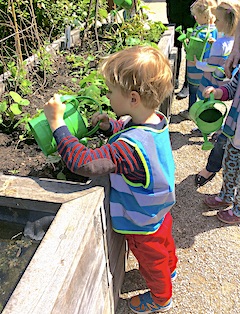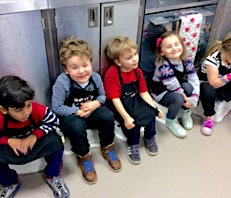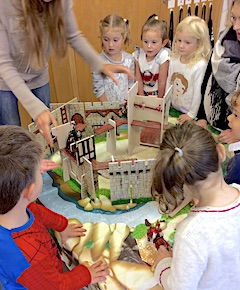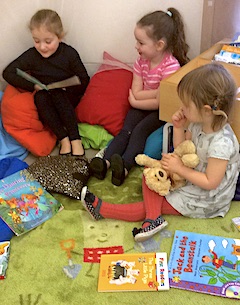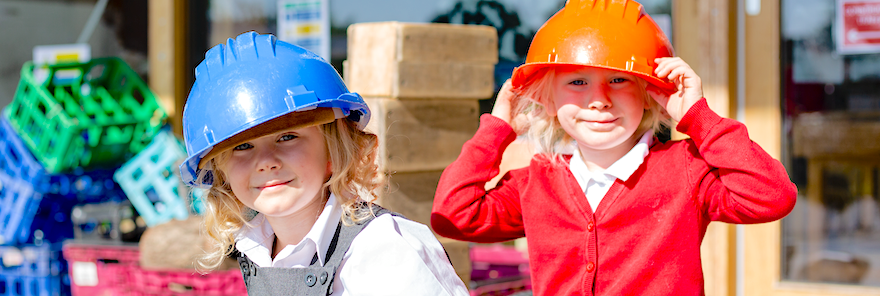
|
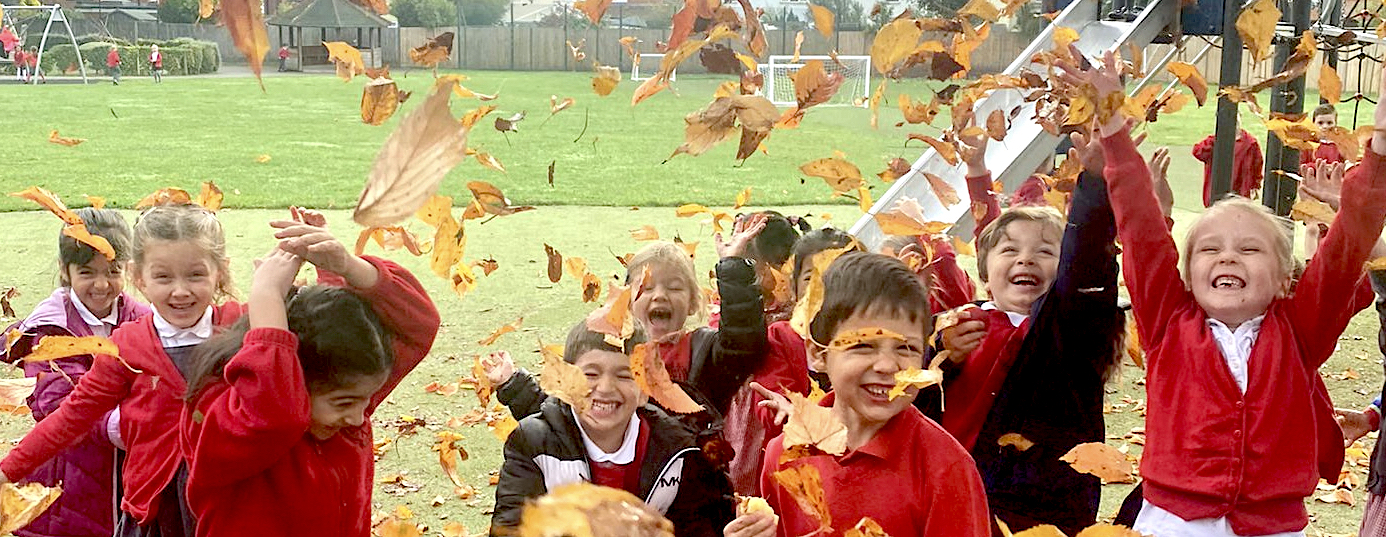 |
|
|
|
| Reception Class Page |
Lowther Reception is fully integrated within the Foundation Stage of the school |
|||
In Reception at Lowther we help children to become enthusiastic and confident learners |
|||
Play is central to the way young children learn and through their experiences in Reception they are developing skills and knowledge which are the foundations for all later learning |
|||
'The Reception phase provides a secure and stimulating environment for young children. Standards of care are high, children are welcomed' 'Home and school are brought together to provide a consistent approach to children's development' |
||||
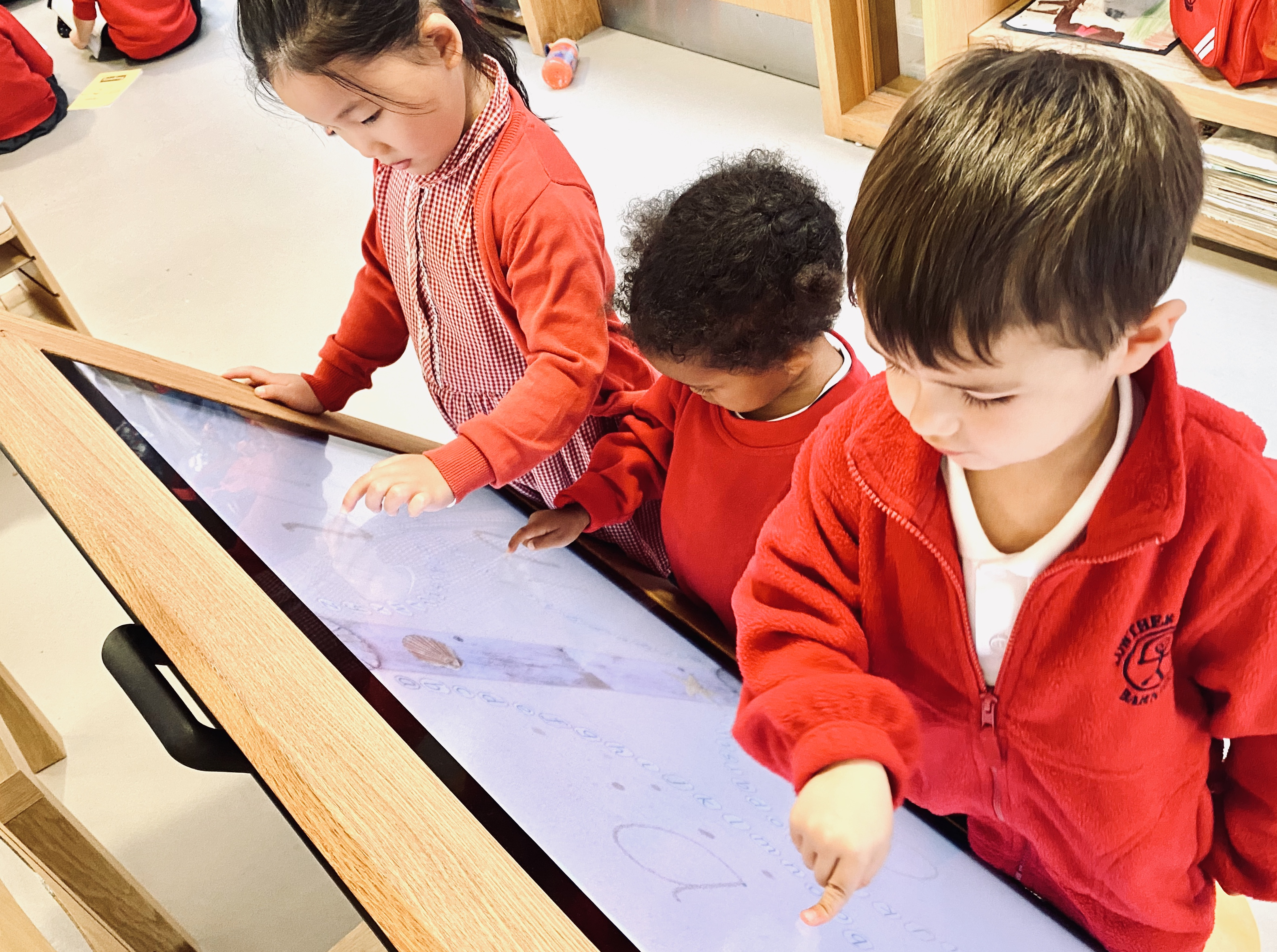 |
| Reception Term Dates |
Children start at 9.00am (and can arrive from 8.45am)... The children finish at 3.30pm.
|
For general information about Lowther Reception:
|
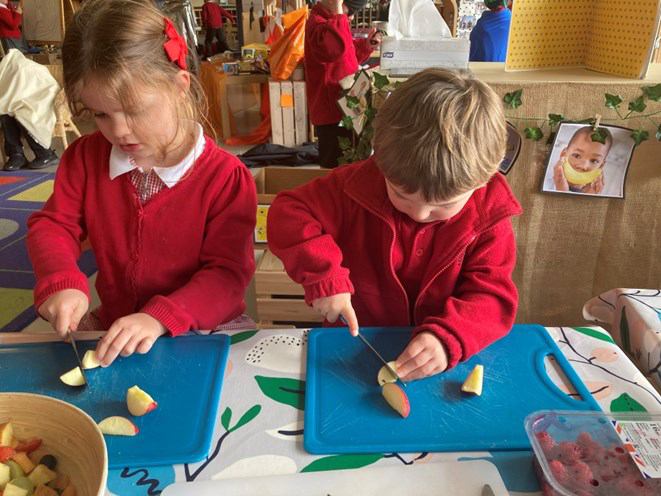 |
|||
|
At Lowther we want to make the transition into school as smooth as possible. We believe that the best way to settle your children into school life is to stagger their entry over a three week period. This has worked very well for the children in the past as it allows them to feel happy and comfortable at school without becoming over tired and overwhelmed. Below is a timetable which details this process. Please note that the timings and requirements for each day vary so please do read carefully.
At the Reception Information meeting in July we explained more regarding your 'Home visit' and 'Meet the Teacher' times and the details regarding whether your child is in group 1, 2 or 3. Please click here to view a PDF version. |
| Timetable PDF |
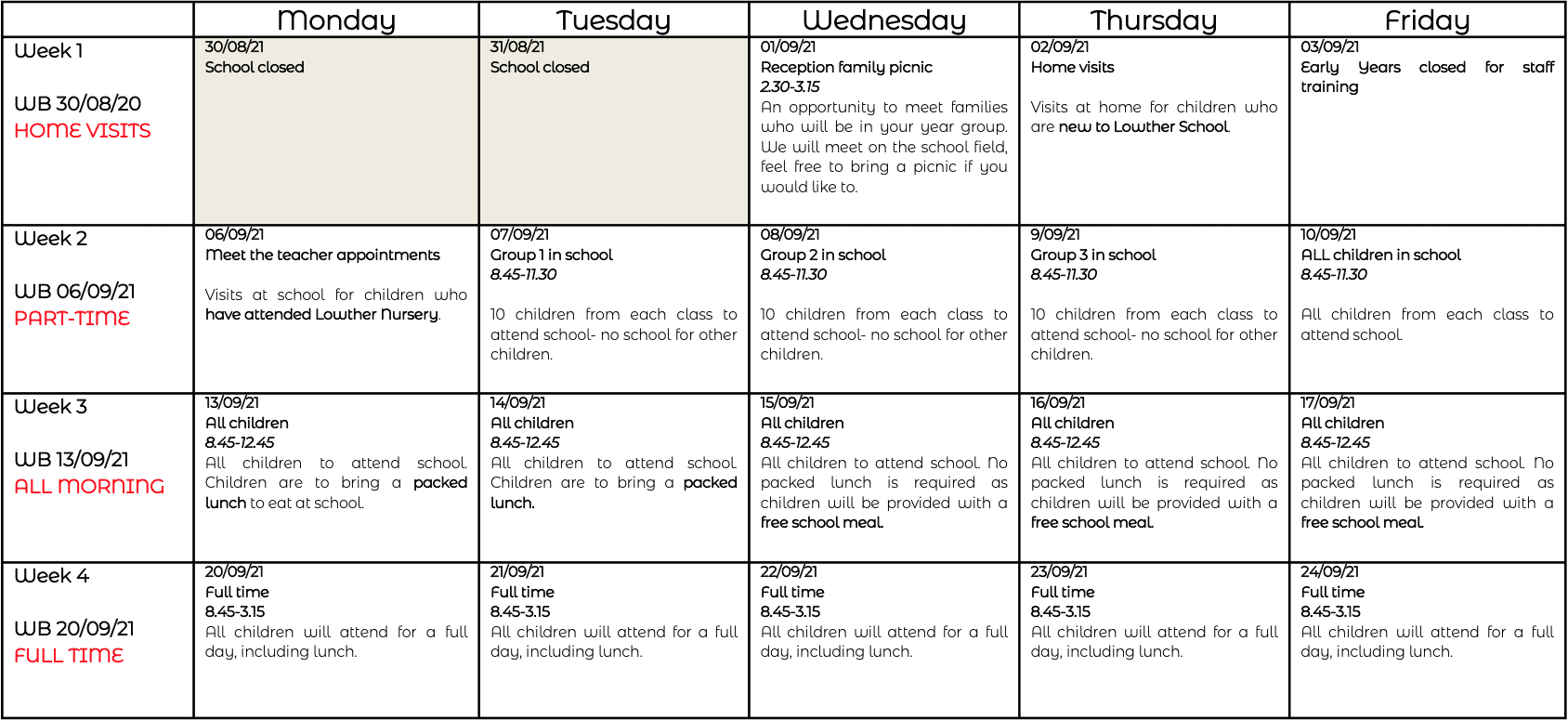 |
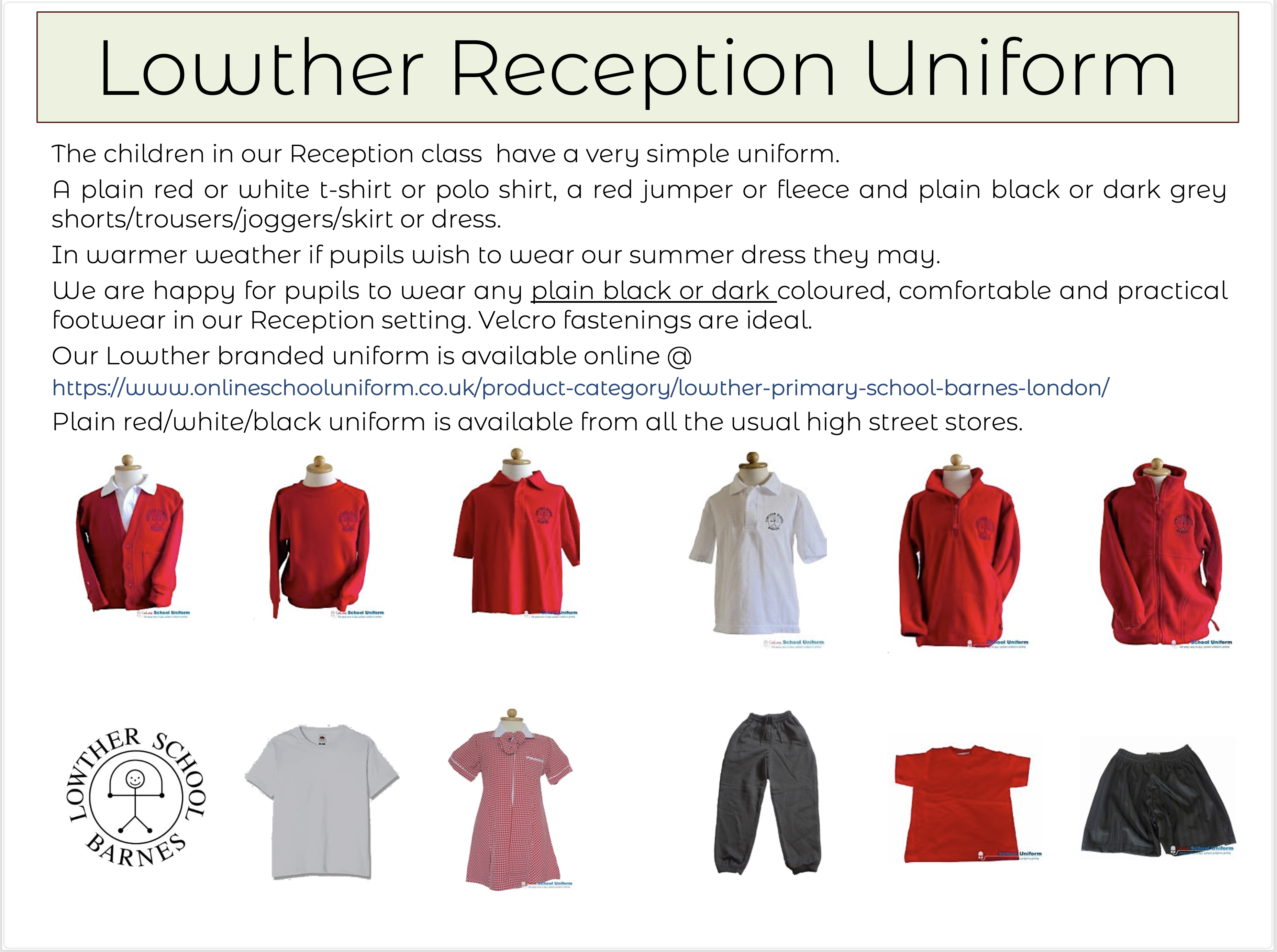 |
| Reception Class Page |
 |
|
Below you will find an outline of the journey and anticipated progress through the Reception phase of the Lowther School Family facilities. We hope this provides helpful insight for understanding how a child will gradually learn and develop new abilities and skills during this exciting phase. |
In Early Years, our aim is to create a learning environment and build relationships which enable children to become confident, creative, and inquisitive members of the Lowther School Family. We strive to create well-rounded individuals who feel valued, have a deep love of learning and are ready and equipped to take on the next step of their learning journey.
During their two years with us, we want children to become: |
||||||
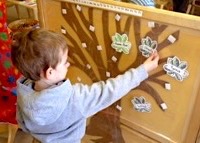
|
||||||
| Competent and motivated learners who are curious about the world around them. | ||||||
| Secure and resilient individuals who are equipped with problem solving skills and a strong sense of self-belief that enables them to bounce back from challenges and achieve well. | ||||||
| Skilful communicators who are equipped with a vast and vibrant vocabulary and can connect with others through language. | ||||||
Children in the Early Years learn in a stimulating and exciting setting, engaging in a mixture of play-based and adult directed activities. Through careful modelling from adults and appropriate challenge within the environment we encourage pupils to play and explore, engage in active learning, and create and think critically. Where possible our children are given the opportunity to learn through first-hand experiences, such as growing their own herbs to use in cooking or observing the hatching and growth of chicks. Like the rest of Lowther School, we love outdoor learning in Early Years and our children can choose to learn either indoors or outdoors every day. We make the most of our own Nursery and Reception gardens alongside the school allotment, chickens, and wonderful grounds! All Reception children have the opportunity to take part in Forest School sessions before they move into the Key Stage 1 phase. We work closely together with our parents and carers to provide a safe and happy start to school life, where families feel welcomed and included in their child's learning. We do this through induction sessions, transition stay and play events and home visits. We also have specific times in which parents are invited in to share information with the class about their jobs, talents, cultures or hobbies. We use an online system called 'Tapestry' to track children's achievements and record 'in the moment' photographs of pupils' learning. All children are observed regularly and learning experiences are then planned to meet the individual needs of children and develop their skills, knowledge and understanding further. Our Nursery and our Reception classes follow the Early Years Foundation Stage statutory framework, supported by the non-statutory Development Matters. The EYFS educational programmes provide us with the curriculum framework which is then built upon to decide the wider learning content that best fits the interests and needs of our children. The curriculum is sequential, taking small steps and then broadening and deepening learning across a wide range of experiences. We teach a variety of planned topics based around carefully selected language-rich texts or cultural calendar events, and maximise opportunities for child-initiated learning, using the interests of individual pupils as a stimulus. |
||||||
We work from the government statutory curriculum for 0-5 year olds. It has 4 key themes - Positive Relationships, A Unique Child, Enabling Environments and Learning Development. |
|||
Reception is about developing life long learners and giving children the skills they will need as they go through school. |
|||
Characteristics of effective learning – Playing and exploring – engagement; Active learning - motivation; Creating and thinking critically - thinking. |
|||
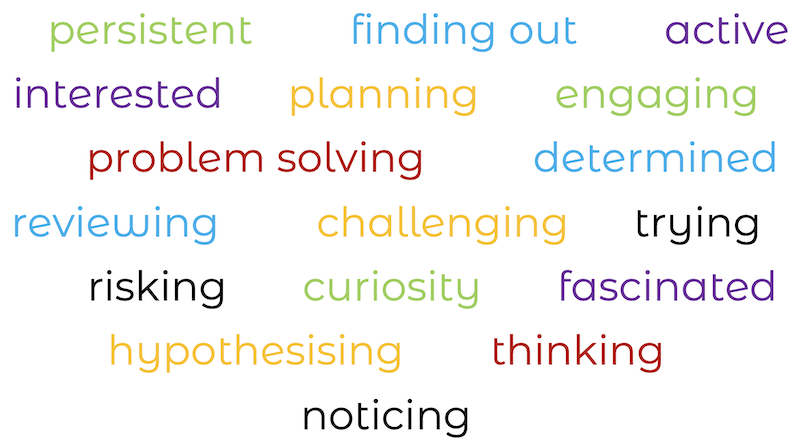  |
Chestnut class work from the Early Years Foundation Stage Curriculum, which sets standards for learning, development and care for children from birth to 5. Within this there are 7 areas of learning: 3 prime areas and 4 specific areas.
|
||||
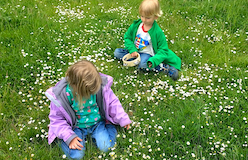 |
||||
One of the core areas – without this nothing else could happen. It helps children to be happy, secure, independent and make relationships |
|||
Links to all other areas and underpins all further learning. Children need to be able to listen, process, understand and communicate. |
|||
Central to brain development and underpins later reading and writing. Left to right tracking, first gross motor and then fine motor. |
|||
This is divided into Reading and Writing. |
|||
Early reading involves a love of books, understanding of how stories are structured, knowing that print conveys meaning and phonic awareness. |
|||
Early writing involves understanding writing is for a purpose, giving meaning to the marks they write, beginning to write their name and awareness of other letters in the alphabet. |
|||
|
Who is the biggest influence on your child's reading development?
 |
|||||
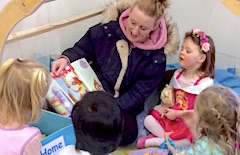 |
|||||
 |
